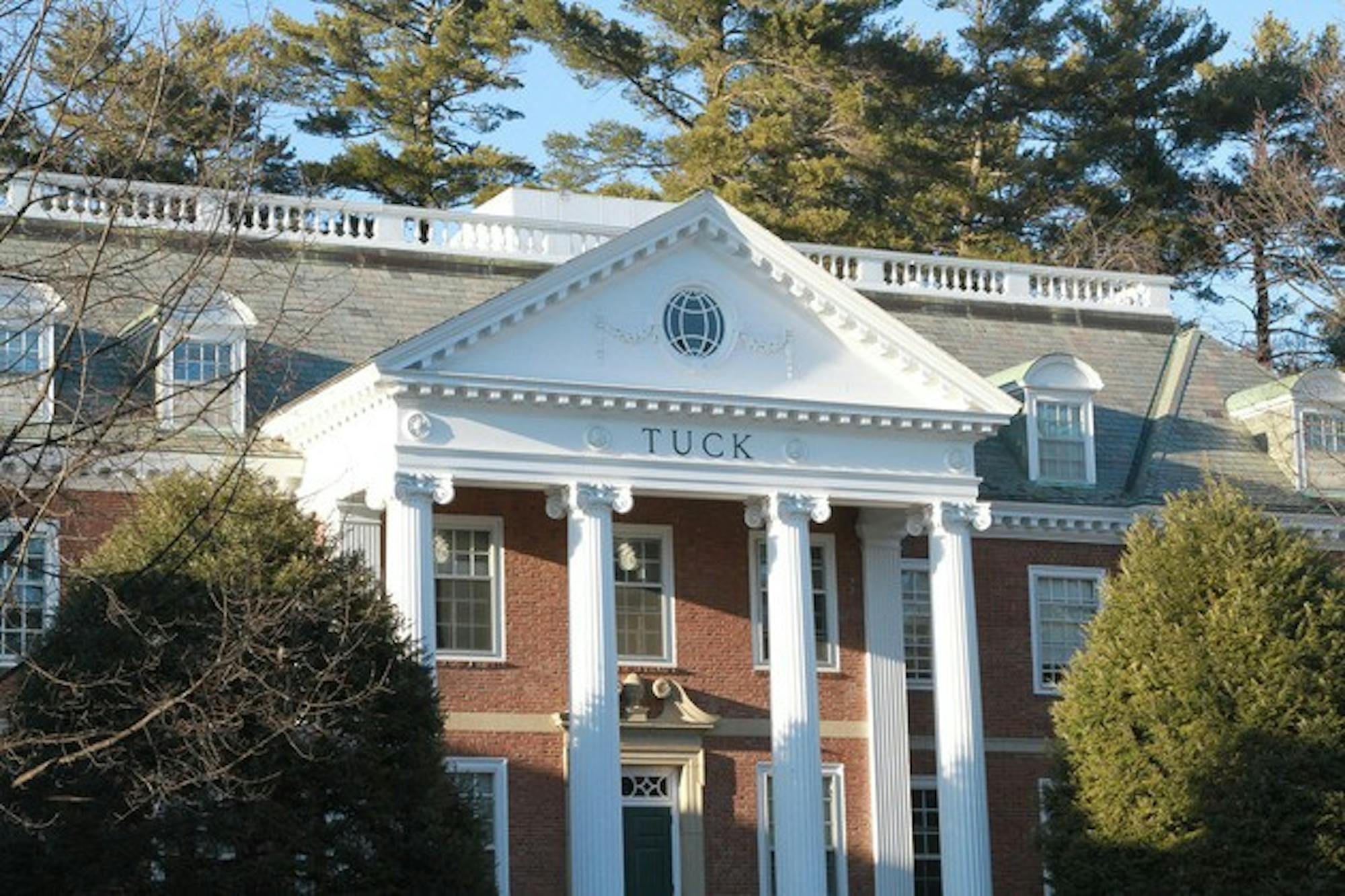Ninety-five percent of Class of 2013 graduates from the Tuck School of Business found jobs within three months, the same rate as last year.
Tuck counseling and recruiting director Jonathan Masland said in an email that Tuck's job placement success can be attributed to "a great education and preparation, a strong alumni network that supports the careers of our MBAs and access to top-tier employers."
The value of the MBA degree has been the subject of skepticism due to a sharp increase in the number of MBA graduates nationwide. Forbes magazine executive editor Michael Noer, however, wrote in an article earlier this month that elite business schools and their graduates are "thriving." Masland said that he agreed with Noer's sentiments, and emphasized that graduates have pursued diverse and prestigious careers opportunities.
Approximately 30 percent of recent graduates joined consulting firms, and another 30 percent pursued finance, investment banking, asset management, private equity and insurance. Nearly 7 percent of the Class of 2013 either started their own business or joined an entrepreneurial venture.
Earlier this year, Masland predicted that current graduates have the luxury of looking for jobs that they want to take, which is a very different situation than that of a post-recession job market.
"[The recent graduates] kind of found their mission and they were not willing to let up," Masland told U.S. News in January. "I think that's actually a sign of strength for the economy. Two years ago, you weren't saying, I'm going to hold out for my perfect job.'"
The Graduate Management Admission Council, the organization in charge of administering the GMAT, conducted a poll of more than 180 companies from a variety of sectors and geographical locations at the end of 2012. The survey found that the job outlook for candidates finishing their graduate degrees was optimistic, as employers were projected to hire 10 to 30 percent more people who have MBAs, non-business master's degrees and finance-related master's degrees.
Thayer School of Engineering, which is the smallest engineering school in the Ivy League, has also seen high employment rates, with 95 percent of the Class of 2013 obtaining a job as of Sept. 15.
Thayer career services director Jennifer St. Laurence said that Thayer has historically had a high job placement rate for their graduating class. In the last seven years, the placement rate has remained between 92 and 95 percent.
The majority of master's of engineering management program graduates enter the business analysis, technical and management consulting and technology sectors. The sector-specific career data for Thayer's other programs was unavailable on the Thayer website.
In total, 103 graduates of Geisel School of Medicine's Class of 2013 were accepted into a residency program, an increase from the previous year. Nationally, approximately 94 percent of medical school seniors were matched to a residency program.
From 2009 to 2013, most Geisel graduates attended residency programs at Harvard Medical School, Geisel, the University of Washington School of Medicine and the University of California at San Francisco College of Medicine.
Representatives from Geisel did not respond to requests for comment by press time.




